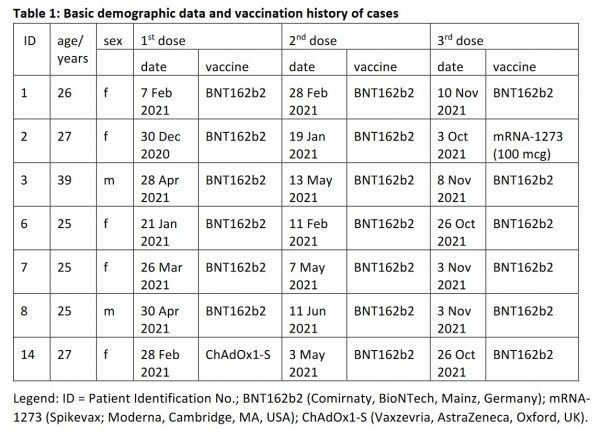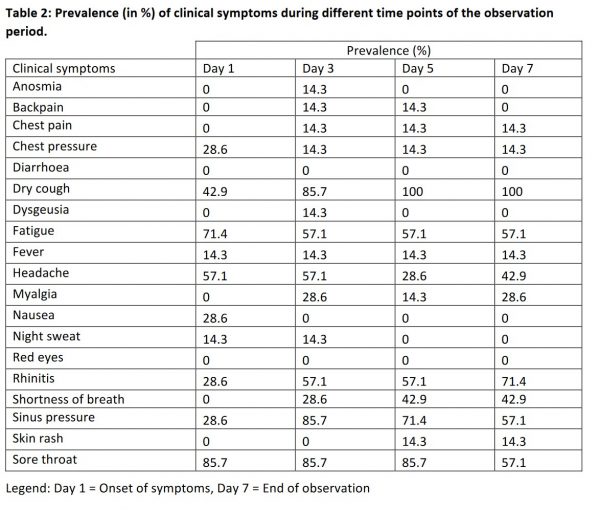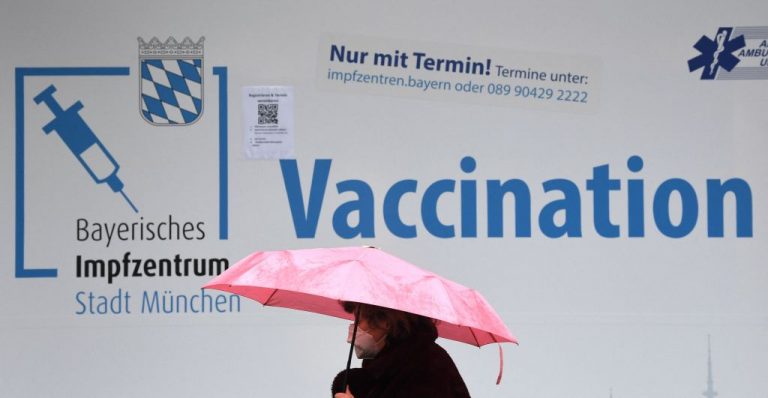A group of seven German young adults from different circles suffered a breakthrough infection of the new Omicron Variant of SARS-CoV-2, the virus that causes Coronavirus Disease 2019 (COVID-19), despite all being fully vaccinated and having accepted a booster dose in the last two months or less.
The cases were revealed in a new study by a team of German and South African scientists published in SSRN on Dec. 9.
The findings come on the back of two recent studies examining the impact of Omicron on vaccinated individuals.
RELATED ARTICLES:
- Botswana Government Says Omicron First Found in Fully Vaccinated Diplomats
- FDA Releases Pfizer’s Vaccine Adverse Reaction Data Revealing Women, People Aged 31 to 50 Suffered Most Side Effects
- ‘A Jail-like Environment’: Fully Vaccinated Mother Describes Calgary ‘Confidential Federal Quarantine Site
The first, a study funded by the Bill & Melinda Gates Foundation and the NIH and published by the Africa Health Research Institute on Dec. 7, found that in an examination of plasma samples from 12 fully vaccinated subjects, six with no natural immunity and six with natural immunity from an infection between 12 and 16 months prior, that the group without natural immunity had a 41 fold reduction in antibody efficacy against Omicron.
Success
You are now signed up for our newsletter
Success
Check your email to complete sign up
The second was data released by Pfizer and BioNTech themselves the next day on Dec. 8, which read something like a material from the marketing department as it stated “that a booster with the current COVID-19 vaccine from Pfizer and BioNTech increases the antibody titers by 25-fold” against Omicron.
In the study on the seven fully triple jabbed German youth, the group was composed of 5 male and 2 female caucasians. Three are 25, two are 26, one is 27, and one is 39. All individuals were reported as healthy “with no relevant medical history.”

Regarding vaccination status, six of the individuals were takers of two doses of Pfizer-BioNTech’s BNT162b messenger RNA injection, while the remaining individual originally took a dose of AstraZeneca’s adenovirus vector double-stranded DNA injection.
Five of the six Pfizer takers accepted a third dose of BNT162b to complete a full three doses of the Pfizer-BioNTech course, while the sixth took a booster of Moderna’s mRNA-1273 injection.
The AstraZeneca taker accepted a double dose of the Pfizer injection to complete their booster course.
Six of the seven individuals completed their acceptance of a booster shot between Oct. 26 and Nov. 10, and one as early as Oct. 3.
The paper said the cohort was of significant study value because, “South Africa has yet to introduce booster vaccinations for individuals immunised with two doses of BNT162b2, so the presence of this group from Germany presented a unique opportunity to study Omicron breakthrough infections in individuals with mRNA vaccine boosters.”
According to the scientists who analyzed the case data, the seven were not part of the same group, “Four individuals were participating in clinical electives at different local hospitals while the others were in South Africa for vacation.”
The individuals arrived in Cape Town “during the first half of November,” and all registered a negative PCR test.
However, “During a marked increase in incidence of SARS-CoV-2 infections in the Western Cape province,” the individuals “observed onset of mild respiratory symptoms” and subsequently registered a positive PCR test.
The researchers obtained direct clinical samples from the patients “as early as logistically possible, between 2 to 4 days after onset of symptoms.”
The infected were placed in domestic isolation, observed for seven days, and given a diary to self-report their symptoms.
“All cases described their symptoms as mild or moderate and none required hospitalisation during the observation period,” reported the researchers, who added that “blood oxygenation levels remained in the normal range without exception.”

The study notes that of the seven individuals, only five were confirmed as Omicron variant infections. For the remaining two, the team said “ sequencing failed but they are inferred to be Omicron, too, based on their very close epidemiological links to the others.”
The study noted all seven of the symptomatic vaccine breakthroughs had “high levels of viral spike protein binding antibodies” generated by the gene therapy vaccines.
Because the individuals’ symptoms were self-reported as either mild or moderate, and nobody required hospitalization, the study asserted “full vaccination followed by a booster dose still provides good protection against severe COVID -19.”
But the caveat, “However, the observation period is short and does not exclude subsequent deterioration or long-term sequelae of COVID-19,” was added to the statement.
In their conclusions, the team stated, “This case series proves that, as predicted, the Omicron variant is able to evade immunity induced by mRNA vaccines in vivo [in the body].”
The team specifically referenced the two most recent studies in further comments, “Hitherto unpublished in vitro [in the lab] data suggest lower titres of neutralising antibodies against the Omicron variant, compared to other SARS-CoV-2 lineages, following BNT162b2 vaccination but increased titres after a third dose (Cele et al., 2021; Wilhelm et al., 2021; Pfizer, 2021), supporting calls for booster doses while the Omicron variant may be spreading globally.”
The researchers were decisive in noting the contradiction when they stated, “Our report, however, shows that this is insufficient to prevent symptomatic infection and emphasises the need to maintain additional non-pharmaceutical interventions.”
In comments to the media lauding his company’s findings on BNT162b2 booster injections to fight Omicron on Dec. 8, BioNTech CEO Ugur Sahin clearly stated that to be fully vaccinated against the new variant should require accepting a booster now while waiting for a three dose Omicron-specific vaccine to be released in March of 2022, which would amount to a six-dose course.
Professor Wolfgang Preiser from the Division of Medical Virology at the University of Stellenbosch in Cape Town, said, according to a Google translate of a Dec.9 article by German-language news outlet Der Tagesspiegel, “Of course you shouldn’t misunderstand that vaccination doesn’t help. On the contrary: It only shows that even the best possible vaccination is obviously not enough to prevent infection – which we already suspected.”
Preiser re-emphasized, “But you have to be aware that even this does not prevent an infection 100 percent. In other words: You have to continue to adhere to the precautionary measures.”







